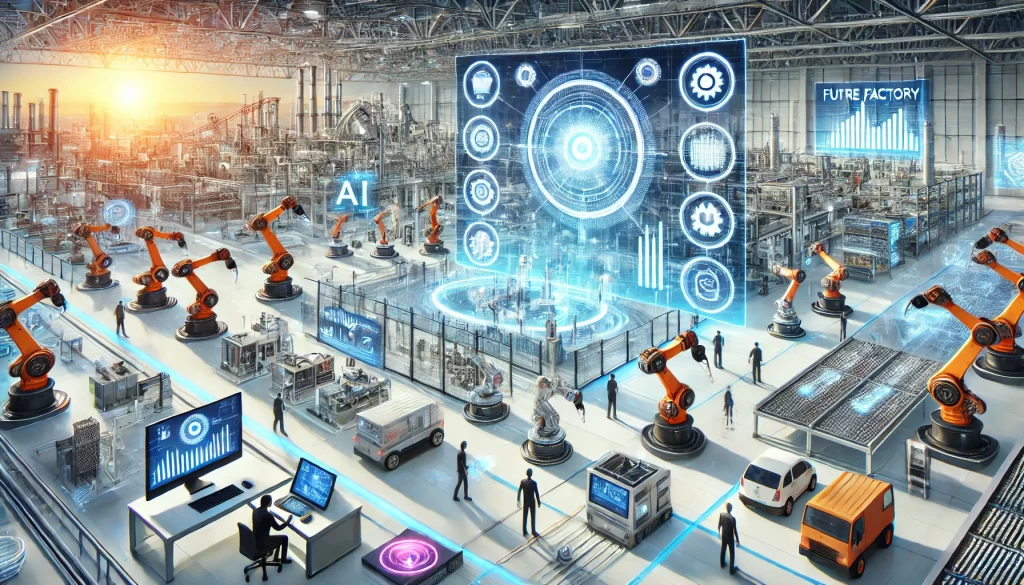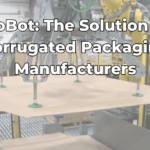In an era of rapid technological advancement, the manufacturing industry stands on the cusp of a revolution. Automation, robotics and machine vision are transforming traditional factories into highly efficient, intelligent production centers. This shift is not just about replacing human labor; it’s about augmenting human capabilities and reimagining the entire manufacturing process.
The Pillars of Future Manufacturing
Advanced Robotics
The future factory will be populated by sophisticated robots capable of performing complex tasks with precision and consistency. These robots, programmed by experts like those at 20/20 Robotics, will handle everything from delicate assembly operations to heavy-duty material handling. As you explore automation options, you’ll find that the latest robotic systems can adapt to your changing production needs, work alongside your human workforce safely, and even learn from their experiences through machine learning algorithms.
Intelligent Machine Vision Systems
Machine vision technology is evolving rapidly, enabling real-time quality control and defect detection at speeds and accuracy levels impossible for human inspectors. Systems like the OASIS (Optical AI Surface Inspection System) from 20/20 Robotics are leading this charge, using AI to train cameras to distinguish between good and bad products. These systems can analyze thousands of your products per minute, identifying microscopic defects and ensuring consistent quality across production runs.
Internet of Things (IoT) Integration
The interconnectedness of machines and systems through IoT will create a seamless flow of data in your factory, allowing for predictive maintenance, real-time adjustments and unprecedented levels of production optimization. Sensors embedded throughout your production line will continuously monitor performance, environmental conditions and product quality, feeding this data into central systems for analysis and action.
The Impact on Manufacturing Operations
Enhanced Efficiency and Productivity
Imagine your production lines running 24/7 with minimal downtime. Automation makes this possible, dramatically boosting your output and resource utilization. With tireless automated systems maintaining consistent production rates and quality standards, you’ll see a marked improvement in overall efficiency. This transformation can give you a significant edge in today’s competitive manufacturing landscape.
Improved Quality Control
Machine vision systems like Guardian from 20/20 Robotics ensure consistent quality by detecting even slight deviations from standards, reducing waste and improving customer satisfaction. These systems can identify issues that might be invisible to the human eye, ensuring that only perfect products reach your customers. By implementing such technology, you’re not just improving quality; you’re building trust and loyalty with your client base.
Flexibility and Customization
Modern robotics systems can be quickly reprogrammed to handle different products or processes, allowing you to respond rapidly to market demands. This flexibility enables mass customization, where you can tailor products to individual customer needs without sacrificing production efficiency. It’s a game-changer in industries where consumer preferences are constantly evolving.
Worker Safety and Job Evolution
Automation takes on dangerous or repetitive tasks, creating a safer work environment for your team. This shift also opens up new roles for your workers in programming, maintaining and supervising automated systems. While some traditional manufacturing jobs may decrease, you’ll see new high-skilled positions emerge in robotics maintenance, data analysis and system optimization. It’s an opportunity to upskill your workforce and attract top talent.
Challenges and Considerations
While the benefits of automation are clear, implementing these technologies comes with challenges:
- Initial investment costs can be substantial, requiring careful financial planning and ROI analysis.
- There’s a growing need for skilled personnel to operate and maintain advanced systems, necessitating investment in training and education.
- Integration with existing systems and processes can be complex, often requiring a phased approach to implementation.
- Cybersecurity concerns increase as factories become more connected, demanding robust security protocols to protect sensitive data and operations.
As a manufacturing leader, you’ll need to carefully weigh these challenges against the long-term benefits. Consider starting with a pilot project in a critical area of your operations to demonstrate value and gain organizational buy-in. This approach allows you to test the waters and make informed decisions about larger-scale implementation.
Industries at the Forefront
Several industries are leading the way in adopting advanced automation, and your sector might be among them:
- Automotive: Robotics for assembly and machine vision for quality control have long been staples, but are now being enhanced with AI and IoT capabilities. These advancements are revolutionizing everything from parts manufacturing to final assembly.
- Electronics: High-precision automation for miniature component assembly is crucial in producing increasingly complex devices. If you’re in this field, you know the importance of accuracy at microscopic levels.
- Food and Beverage: Hygienic automation solutions for processing and packaging ensure food safety while increasing production capacity. This is particularly crucial in maintaining consistency and meeting stringent regulatory requirements.
- Pharmaceuticals: Cleanroom-compatible systems meet stringent quality requirements and ensure consistency in drug manufacturing. The precision offered by automation is unparalleled in this highly regulated industry.
- Aerospace: Precision manufacturing and advanced inspection technologies are vital in this high-stakes industry where errors can have catastrophic consequences. Automation provides the reliability and repeatability necessary for aerospace components.
The Role of 20/20 Robotics in Shaping the Future Factory
As pioneers in robotics and machine vision technologies, 20/20 Robotics is at the forefront of this manufacturing revolution. Our team of experienced engineers specializes in developing customized automation solutions that address the unique challenges faced by manufacturers across various industries.
From the AI-powered OASIS for surface inspection to the Guardian system for real-time product overhang detection, we’re committed to delivering cutting-edge technologies that drive efficiency, quality and profitability. Our solutions are designed to integrate seamlessly with your existing systems, providing a clear path to your factory of the future.
Ready to transform your manufacturing facility into a future-ready powerhouse? Contact 20/20 Robotics today to explore how our automation expertise can propel your business forward.
FAQs
What is the main advantage of implementing automation in manufacturing?
Automation significantly enhances efficiency and productivity by reducing downtime, increasing speed and allowing for 24/7 operation. It also improves quality control and allows for greater flexibility in production processes, enabling you to meet diverse market demands more effectively.
How does machine vision technology improve quality control?
Machine vision systems use advanced cameras and software to inspect products in real-time, detecting defects and inconsistencies with a level of accuracy and speed impossible for human inspectors. This leads to higher quality products, reduced waste and improved customer satisfaction by ensuring that only products meeting exact specifications reach the market.
Will automation replace human workers in manufacturing?
While automation will change the nature of many jobs, it’s more likely to augment human capabilities rather than replace workers entirely. New roles will emerge in programming, maintaining and supervising automated systems. Your future factory will require a workforce skilled in working alongside and managing advanced technologies.
What industries can benefit most from manufacturing automation?
While automation can benefit nearly all manufacturing sectors, industries like automotive, electronics, food and beverage, pharmaceuticals and aerospace are currently at the forefront of adopting these technologies due to their specific needs for precision, consistency and efficiency. However, as technologies become more accessible, even smaller-scale manufacturers across various sectors are finding ways to incorporate automation into their processes.
How can manufacturers start implementing automation in their facilities?
The first step is to assess your current processes and identify areas where automation could provide the most significant benefits. Consulting with automation experts like 20/20 Robotics can help you develop a tailored strategy for implementing the right technologies for your specific needs. Start with a pilot project to demonstrate value and build from there, ensuring your workforce is trained and prepared for the changes ahead.






